Related Research Articles
The National Congress of the Canaries is a separatist political party in the Canary Islands, Spain.

The Popular Front of the Canary Islands or FREPIC-AWAÑAK is a marginal leftist political party seeking independence from Spain for the Canary Islands.

Canarian nationalism is a political movement that encourages the national consciousness of the Canarian people. The term includes several ideological trends, ranging from a demand for further autonomy within Spain to the right to self-determination.
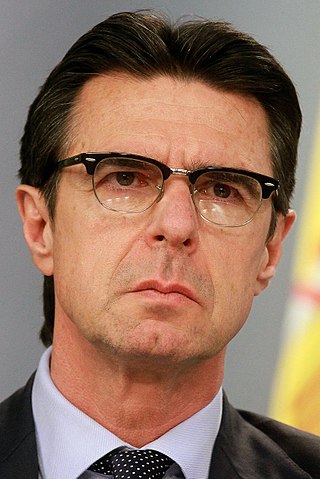
The 2011 Canarian regional election was held on Sunday, 22 May 2011, to elect the 8th Parliament of the Autonomous Community of the Canary Islands. All 60 seats in the Parliament were up for election. The election was held simultaneously with regional elections in twelve other autonomous communities and local elections all throughout Spain.
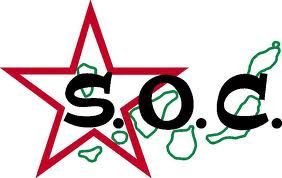
Sindicato Obrero Canario was a nationalist trade union movement in the Canary Islands. It was founded as an underground movement in 1976, under the leadership of the Canarian Communist Party (Provisional). The union was legalized in 1977.
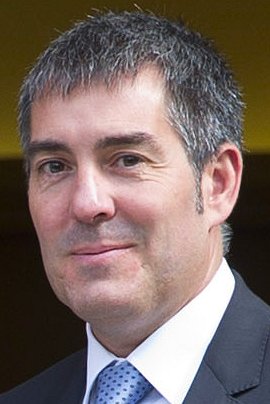
The 2015 Canarian regional election was held on Sunday, 24 May 2015, to elect the 9th Parliament of the Autonomous Community of the Canary Islands. All 60 seats in the Parliament were up for election. The election was held simultaneously with regional elections in twelve other autonomous communities and local elections all throughout Spain.

Canarian Nationalist Alternative is a Canarian left-wing nationalist political party, born in 2006 after a split of the People's Alternative for the Canary Islands (APC).
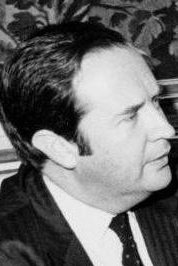
The 1983 Canarian regional election was held on Sunday, 8 May 1983, to elect the 1st Parliament of the Autonomous Community of the Canary Islands. All 60 seats in the Parliament were up for election. The election was held simultaneously with regional elections in twelve other autonomous communities and local elections all throughout Spain.

The 1987 Canarian regional election was held on Wednesday, 10 June 1987, to elect the 2nd Parliament of the Autonomous Community of the Canary Islands. All 60 seats in the Parliament were up for election. The election was held simultaneously with regional elections in twelve other autonomous communities and local elections all throughout Spain, as well as the 1987 European Parliament election.

The 1991 Canarian regional election was held on Sunday, 26 May 1991, to elect the 3rd Parliament of the Autonomous Community of the Canary Islands. All 60 seats in the Parliament were up for election. The election was held simultaneously with regional elections in twelve other autonomous communities and local elections all throughout Spain.

The 1995 Canarian regional election was held on Sunday, 28 May 1995, to elect the 4th Parliament of the Autonomous Community of the Canary Islands. All 60 seats in the Parliament were up for election. The election was held simultaneously with regional elections in twelve other autonomous communities and local elections all throughout Spain.
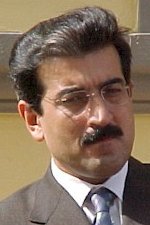
The 1999 Canarian regional election was held on Sunday, 13 June 1999, to elect the 5th Parliament of the Autonomous Community of the Canary Islands. All 60 seats in the Parliament were up for election. The election was held simultaneously with regional elections in twelve other autonomous communities and local elections all throughout Spain, as well as the 1999 European Parliament election.

The 2003 Canarian regional election was held on Sunday, 25 May 2003, to elect the 6th Parliament of the Autonomous Community of the Canary Islands. All 60 seats in the Parliament were up for election. The election was held simultaneously with regional elections in twelve other autonomous communities and local elections all throughout Spain.

The 2007 Canarian regional election was held on Sunday, 27 May 2007, to elect the 7th Parliament of the Autonomous Community of the Canary Islands. All 60 seats in the Parliament were up for election. The election was held simultaneously with regional elections in twelve other autonomous communities and local elections all throughout Spain.
Canarian Assembly was a left-wing nationalist political party operating in the Canary Islands. The party aims were self-determination for the islands, workers' self-management and socialism.

The Canarian Independent Groups were a Spanish political party based in the Canary Islands that existed from 1985 until its integration in Canarian Coalition.
Communist Party of the Canary Islands (provisional) (Spanish: Partido Comunista Canario-provisional, PCC(p)), later Party of the Canarian Revolution (Spanish: Partido de la Revolución Canaria), PRC) was a Marxist-Leninist and Canarian nationalist political party operating in the Canary Islands. The party aim was self-determination for the islands and socialism.
The Agreement of Nationalist Unity, frequently known under the name of its constituent parties, Canarian Coalition–Canarian Nationalist Party, was a permanent Canarian nationalist alliance formed by Canarian Coalition (CC) and Canarian Nationalist Party (PNC) in 2006 ahead of the 2007 Canarian regional election. The alliance has been renewed several times, in 2011, 2013 and 2018. For the 2011 and November 2019 general elections it was joined by New Canaries (NC). The alliance was dissolved in 2023, with the PNC arguing that the CC had now « nothing of nationalist »

Coalition for a Solidary Europe is an electoral list of regionalist parties that was formed to contest the 2019 and 2024 European Parliament election in Spain. The list is the de facto successor of the Coalition for Europe that ran in the 2014 and 2009 elections. Is formed by the Basque Nationalist Party (EAJ/PNV), Canarian Coalition–Canarian Nationalist Party (CCa–PNC), Proposal for the Isles, Geroa Socialverdes and Atarrabia Taldea.

Canary Islands Now is a left-wing and Canarian separatist electoral alliance founded in February 2019 in order to compete in the 2019 Spanish general election and the Canarian regional election of that same year. The alliance is formed by three parties: Canarian Nationalist Alternative, National Congress of the Canaries and the Unity of the People.
References
- ↑ Fernando Jáuregui Campuzano: El Partido Reformista Democrático celebrará un 'acto preconstituyente' dentro de dos semanas. El País, 20/05/1983.
- ↑ Historiaelectoral - Canarias
- ↑ "Registro de partidos políticos". Archived from the original on 2017-09-30. Retrieved 2018-01-02.